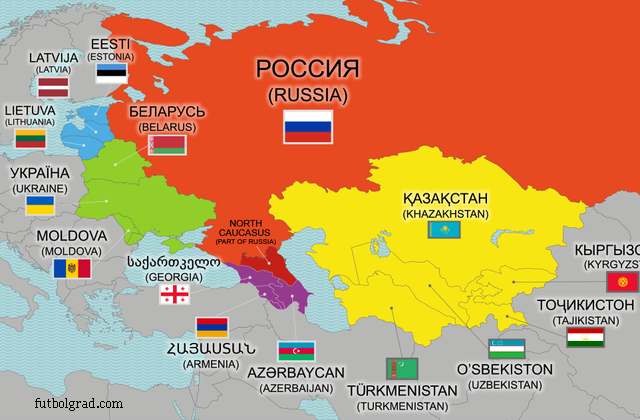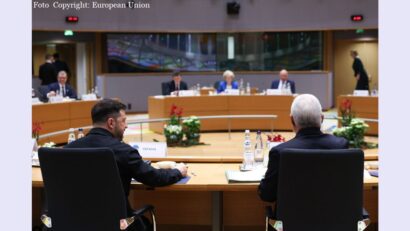The United States and Democracy in Ex-Soviet States
When Ukrainian officials opted for drawing closer to Moscow by refusing to sign association and free trade agreements and thus forfeiting their EU aspirations at the Vilnius summit last autumn, some analysts saw in Moldova and Georgia’s signing Association Agreements a consolation prize for EU leaders. Although Ukraine is the most important of the three former Soviet republics on the geopolitical and demographic map, the pro-Western Governments in Tbilisi and Chisinau did not give in to Russia’s pressure, nor did they show any sign of discouragement at Ukraine’s move closer to Moscow.

Bogdan Matei, 25.02.2014, 13:36
When Ukrainian officials opted for drawing closer to Moscow by refusing to sign association and free trade agreements and thus forfeiting their EU aspirations at the Vilnius summit last autumn, some analysts saw in Moldova and Georgia’s signing Association Agreements a consolation prize for EU leaders. Although Ukraine is the most important of the three former Soviet republics on the geopolitical and demographic map, the pro-Western Governments in Tbilisi and Chisinau did not give in to Russia’s pressure, nor did they show any sign of discouragement at Ukraine’s move closer to Moscow.
The fact that they signed Association Agreements with the European Union shows that Western values continue to have a strong appeal for Eastern countries. The efforts and courage of the two countries at the edge of the former Soviet empire were quickly recognized overseas. On Monday, US president Barack Obama met with Georgian Prime Minister Irakli Garibashvili in Washington, whom he assured of America’s unwavering support for Georgia’s European aspirations.
The US president also expressed his country’s full support for Georgia’s sovereignty and territorial integrity within its internationally recognized borders. Political pundits see the statement as an overt reference to the two de facto independent regions of South Ossetia and Abkhazia, where thousands of Russian military are currently deployed. Moscow officially recognized their independence following the armed conflict with Georgia of August 2008, which triggered a rift in American-Russian relations.
Within days of Garibashvili’s visit, Moldovan Prime Minister Iurie Leanca is also expected to arrive in Washington. The Moldovan official will meet with US vice-president Joe Biden, a meeting which will reportedly “serve as an opportunity to affirm the United States’ strong support for Moldova’s democratic development as it charts its own political and economic future”. Moldova too is confronted with pro-Russian separatism in the autonomous regions of Transdniestr and Gagauzia. Joe Biden visited Chisinau in March 2011 as part of his European tour.
In December 2013, right after the Vilnius summit, US Secretary of State John Kerry came to Chisinau to confirm the United States’ support for Moldova’s European path. Sources within the US Congress have told the media that all those contacts are aimed at showing America’s support for Russia’s neighbours, against the backdrop of the political crisis in Ukraine.
In the early 2000s analysts said that, building on the successful NATO and EU integration of ex-communist East European states, the United States would launch a second wave of expanding democracy to ex-soviet states. 10 years on, after countless efforts and huge sacrifices, the project is gradually starting to take shape.






























